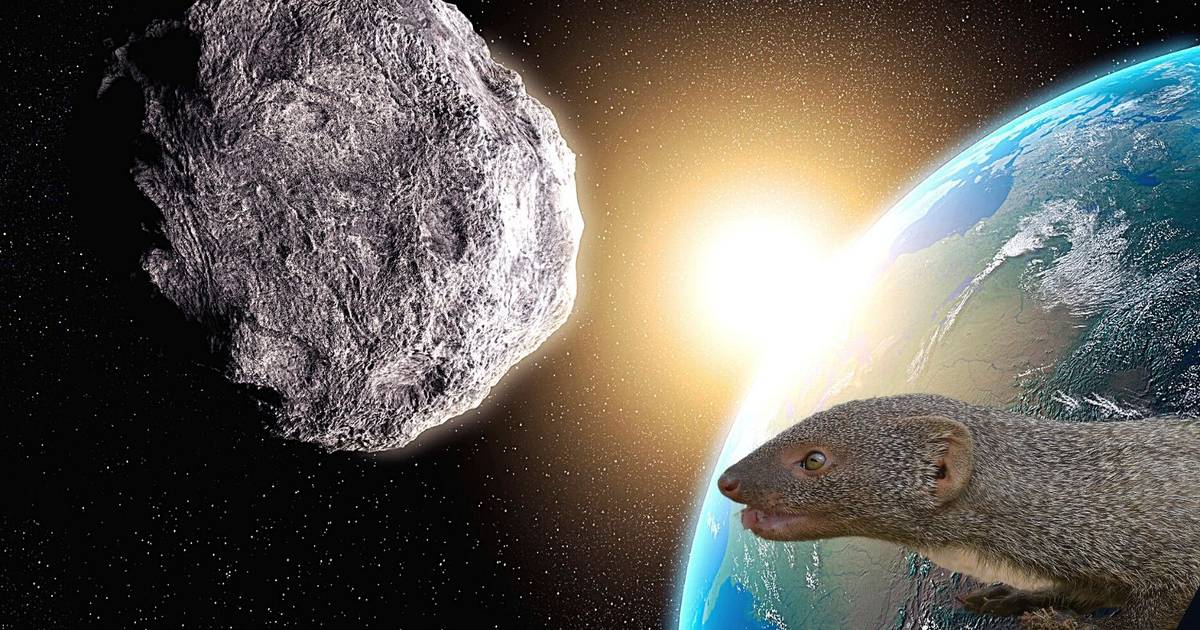After a deadly asteroid strike 66 million years ago that doomed dinosaurs to extinction, strength seems to have been more important than the brains of mammals that managed to survive the cataclysm and take over a new changed world.
Scientists said Thursday that an analysis of Paleocene mammal fossils spanning 10 million years after an asteroid wiped out three-quarters of the Earth’s species found that although their bodies became much larger, their brain size relative to body weight was actually decreased.
The findings contradict the idea that it was intelligence that forced mammals, small dinosaur players, to become the new rulers of the planet after the mass extinction of species at the end of the Cretaceous.
“The process of developing a large brain in mammals after extinction has been much slower than we thought,” said Ornella Bertrand, a mammalian paleontologist at the University of Edinburgh and lead author of a study published in the journal Science.
Scientists used CT scans to scan fossils of 28 Paleocene mammals and 96 from the next Eocene epoch, which stretches back to 56-34 million years ago.
They assessed brain size and the development of specific cerebral components.
Brain growth, they found, began during the Eocene, along with a change in the importance of various functions.
“Contrary to our expectations, asteroid survivors and dinosaur survivors were pretty stupid. They weren’t even close to the mental abilities of today’s mammals – and shrewd intelligence came only many millions of years later,” said University of Edinburgh paleontologist and study co-author Steve. Brusatte.
Mammals began to develop a larger body almost immediately after the mass extinction that eliminated the dinosaurs. Before that, mammals were usually the size of a shrew.
During the Paleocene, some became as large as bears.
“When the flightless dinosaurs became extinct, the mammals had an unprecedented opportunity and they began to dominate the ecological niches that remained empty, becoming larger,” Bertrand said.
Scientists have found that sense of smell, measured by the development of olfactory lobes of the brain, was crucial for Paleocene mammals as they took on new roles in ecosystems.
During the Eocene, other abilities such as greater integration of sight, hearing, memory, and motor control — associated with the development of the neocortex — became increasingly important for survival.
“There is a price associated with the cerebrum. The energy expended on the brain represents 20 percent of the total energy the body needs. So the evolution of the cerebrum can only happen when the benefits of the cerebrum outweigh the cost of maintenance,” Bertrand said.
Mammals now boast the largest brains in the animal kingdom in terms of body size.
Their Eocene brain growth occurred as competition for resources intensified and complex behavior became vital to species survival, Bertrand said.
Some archaic Paleocene lineages have disappeared, replaced by mammals more similar to those living today.
With the disappearance of dinosaur predators and herbivores, mammals began to fulfill these roles in the Paleocene, the time of evolutionary experiments.
Arktokion, the size of a panther, one of the mammals studied, had large teeth and ate meat and possibly plants. The llama-sized herbivore Ectoconus, also studied, was of strong build with strong limbs and feet.
The study focused on placental mammals, by far the most common mammals. Fossils discovered in recent years in New Mexico, Colorado, and France have provided insight into Paleocene mammals.
“Within 100,000 years of extinction, the richness of the species increased, and mammals quickly became morphologically diverse,” Bertrand said.
“Some Paleocene species were generally large and quite different from today’s groups, while others lived in trees and may have been possible ancestors of primates – a group that included humans much later. In the Paleocene, mammals thrived unhindered.”
